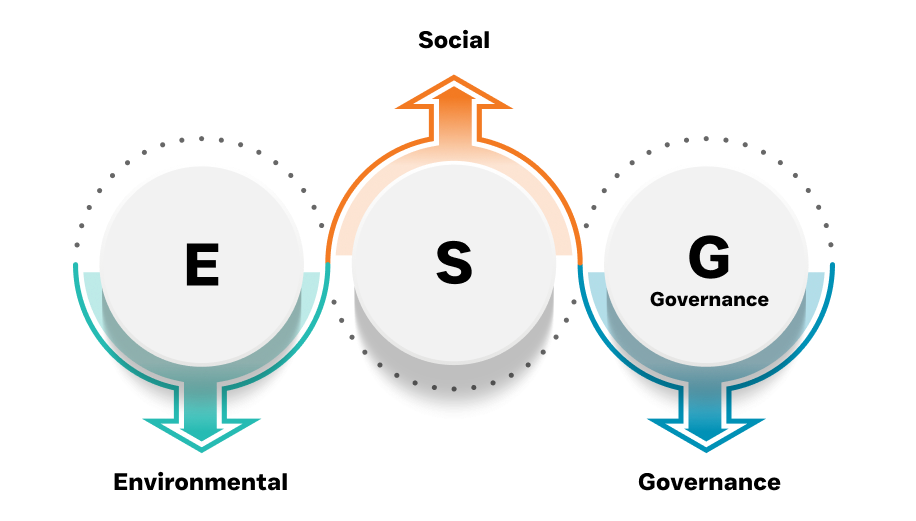

In India, where agriculture sustains more than half the population, going sustainable is no longer a choice. Because today, the game has radically changed.
The world is not just watching your crops but also how you grow them. This push comes from global demands, like climate accords and choosy international buyers who want proof that your produce is eco-friendly and ethically sourced.
Farm-to-fork practices are now strictly governed by Global Green Standards and the indispensable framework of Environmental, Social, and Governance (ESG) reporting. If you're in agribusiness, whether managing vast supply chains or exporting to Europe, you know the drill. Regulations are tightening, and without solid ESG reporting tools and ESG software, you risk getting shut out of premium markets.
In essence, ESG reporting is a report card for your company's footprint beyond profit. ESG stands for Environmental (E), Social (S), and Governance (G). It demonstrates to stakeholders, investors, regulators, and customers how your business strikes a balance between sustainability and ethical operations

India's agriculture sector is a powerhouse, accounting for 18% of the country's GDP while employing 45% of the labour force. However, it is also at risk. Climate change introduces volatile monsoons, and global trade requires cleaner agriculture. For highly fragmented markets such as India, ESG reporting is a strategic imperative.
International buyers and financial institutions are applying more and more ESG metrics to screen supply chains. A lack of reportable information can shut off remunerative export markets and access to sustainable finance.
Detailed ESG data helps manage core agricultural risks, such as climate change (E), labor disputes (S), and corruption in input procurement (G)
ESG reporting serves as the data engine for meeting these critical global green standards:
Directs farms to improve productivity while ensuring Zero Hunger and Climate Action.
Provides the specific template for publicly disclosing environmental and social impacts, ensuring data standardisation.
Requires agribusinesses to quantify the financial risks and opportunities associated with climate change.
Sets strict sustainability criteria (like deforestation-free sourcing) that dictate market access to the European Union.
Modern ESG Reporting Tools and ESG software operate using agri-tech to simplify data collection and analysis. Latest ESG Reporting Tools and ESG software operate by using agri-tech to ease data collection and analysis.

Satellite imaging and drone imagery offer objective, scalable data on crop health and boundary integrity, required for deforestation and land-use compliance.
These offer hyperlocal soil moisture, temperature, and microclimate conditions' data that flow directly into the ESG Software for compliance calculations.
With our Field Technician Management solutions, your team will be able to operate more efficiently in the field. By means of easy-to-handle mobile applications, they are able to carry out digital surveys, capture geotagged photos of agricultural practices and provide personalised crop advice, all these while developing a transparent, traceable digital audit.\
Enjoy the use of our Crop Analytica's tailored ESG Reporting Software which is created for the agriculture supply chain to be managed accurately and effortlessly.
This is where Crop Analytica stands out. Our specialised software has been very efficiently designed to manage the agricultural supply chain in a very accurate and simple way. The main difference of the tool from others is that it is not only globally but also locally designed for Indian agribusinesses and thus it is very compatible with local FPOs and government schemes without any hassle.
Crop Analytica's ESG reporting platform streamlines data collection, drawing on satellite, IoT, and mobile inputs to compile reports with a single click. It can manage complex tasks, such as multi-crop rotation or broken landholdings, by computing carbon footprints or social effects without manually crunching numbers. Our dashboards offer easy-to-read visuals, like charts specifically tailored for both management and field teams, hence it becomes quite easy to monitor the progress and make the right decisions.
Besides, it can scale from a single farm and grow to global chains. It frees you from paperwork by up to 70% (based on other tools' benchmarks), so it frees you to focus on farming. Bottom line, Crop Analytica's ESG reporting platform makes ESG a breeze, not a burden, helping you meet global green standards while increasing efficiency and profits.